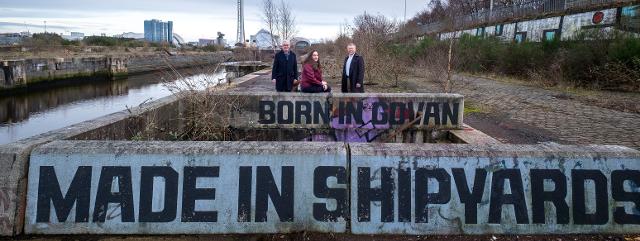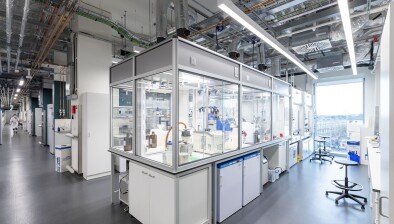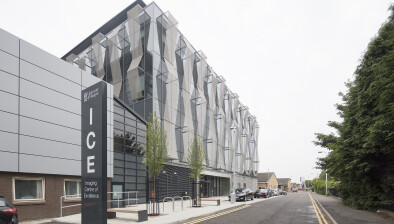Glasgow unveils £10m research hub to boost city’s transition to climate resilience
Scientists are to begin work on a large-scale research programme that will help transform Glasgow into a thriving, climate-resilient city and support its ambition to reach net-zero by 2030.

University of Glasgow researchers will work in partnership with Glasgow City Council to create transformation projects across the city and embed sustainability into the wider socio-political system.
The GALLANT project, which has received £10 million from the Natural Environment Research Council, will:
- Transform urban river edge land use to firstly, identify areas to create urban corridor parks that will act as flood storage areas to help manage flood risks for city homes and businesses, and secondly, build more urban nature such as salt marshes for improving urban blue space quality for wildlife and people whilst improving societal resilience to climate change.
- Review and deliver improved biodiversity by restoring and connecting habitats that are currently isolated across the city by mapping important species of birds, mammals and working with local agencies to implement suitable management of greenspace to increase connectivity between core habitats.
- Regenerate derelict and polluted land into spaces that mineralise greenhouse gases and trap organic pollutants into building materials for the future.
- Improve air quality and reduce CO2 through changing travel behaviours by increasing uptake of active travel including cycling, wheeling and walking to reduce car journeys.
- Develop sustainable low carbon energy solutions at the community scale that empower local people as active energy citizens to co-create clean energy demand.
The innovative programme to create a sustainable, healthy urban environment will help regenerate the river Clyde region, which faces significant social, economic and environmental challenges, and will provide learning that will help other cities in their missions to adopting green solutions.
Professor Jaime L Toney, director of the University of Glasgow’s Centre for Sustainable Solutions, is leading the GALLANT project. Professor Toney said: “We’re delighted to have received this funding from the Natural Environment Research Council, which is a significant boost to delivering Glasgow’s post-COP26 legacy.
“GALLANT builds on the Green Recovery Dialogues, a series of discussions between the University, Glasgow City Council, businesses and community groups. As a result of those conversations, we were able to identify areas for urgent action in the recovery from Covid toward achieving the city’s net-zero climate resilience objectives.
“Using Glasgow as a living lab is an exciting opportunity to collaborate with communities and stakeholders across the city to deliver tangible environmental solutions that also improve public health, wellbeing, and move us toward a green, inclusive economy.”
Councillor Susan Aitken, leader of Glasgow City Council, said: “This important project is a testament to the strength of our partnership work on sustainability in Glasgow and it draws on the best of our town-gown relationships.
“GALLANT will support our ambitious plans to become net zero carbon by the year 2030 and help to ensure that we are ready and resilient for a changing climate.
“It will also look at how we address the scars of our industrial past, improve the quality of life for our people, and that we play our part as responsible stewards of our city for a more sustainable and just future for all.
“The funding for this project represents a big vote of confidence in Glasgow’s ability to deliver and represents a tangible legacy of our role as COP26 host city.”
Professor Sir Duncan Wingham, executive chair of NERC, commented: “As COP26 has shown, it’s vital that we invest in world-leading science to find solutions now to climate change and recovery of our natural environment. This investment by NERC will enable an ambitious step change in how the best science from across different disciplines can come together to address major environmental challenges facing the UK and support the transition to a Net Zero and nature-positive future.”
















